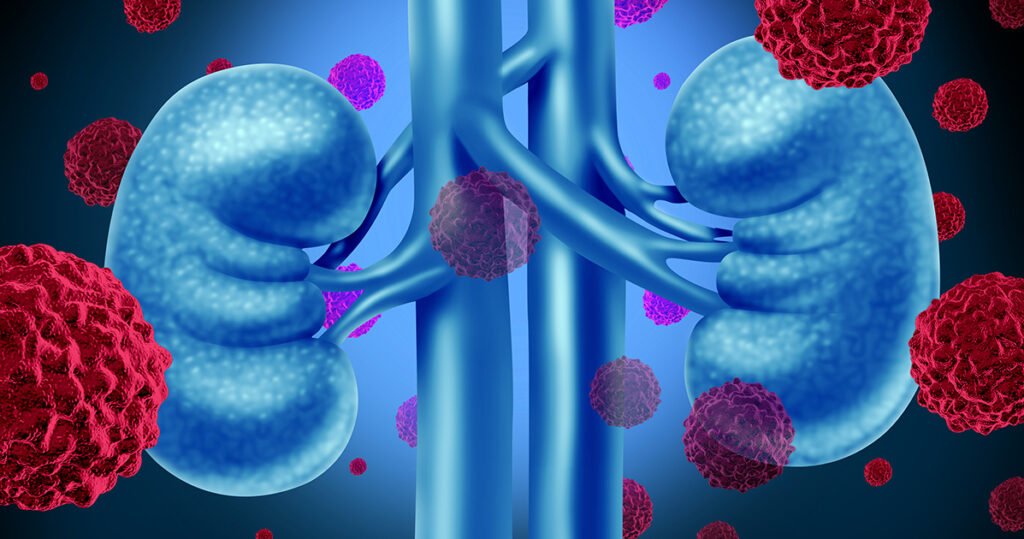
Introduction
Is Kidney Cancer Curable ? – Kidney cancer, also known as renal cell carcinoma (RCC), is a type of cancer that develops in the kidneys. It is essential to understand that the curability of kidney cancer depends on various factors, including the stage of the cancer, the presence of metastasis, and the overall health of the patient. In this article, we will explore the curability of kidney cancer, treatment options, and the prognosis associated with the disease.
Treatment Options for Kidney Cancer
Surgery: Surgery is the primary treatment for kidney cancer, especially in the early stages when the tumor is localized to the kidney. The surgical approach may involve removing either a part of the kidney (partial nephrectomy) or the entire kidney (radical nephrectomy). In some cases, minimally invasive techniques such as laparoscopic or robotic-assisted surgery may be used, which can result in faster recovery and reduced complications.
Targeted Therapy: Targeted therapy uses medications that specifically target cancer cells, disrupting their growth and survival. These drugs work by blocking specific pathways and proteins involved in the growth and spread of kidney cancer. Targeted therapies have shown promising results in treating advanced kidney cancer and may be used as the primary treatment or in combination with surgery.
Immunotherapy: Immunotherapy aims to boost the body’s immune system to fight cancer cells effectively. Immune checkpoint inhibitors, a type of immunotherapy, have been approved for the treatment of advanced kidney cancer. These drugs help remove the “brakes” on the immune system, allowing it to recognize and attack cancer cells more effectively.
Radiation Therapy: Radiation therapy uses high-energy X-rays or other types of radiation to target and destroy cancer cells. While it is not typically the primary treatment for kidney cancer, it may be used to alleviate symptoms or treat cancer that has spread to other parts of the body (metastatic kidney cancer).
Laparoscopic Nephrectomy: Laparoscopic nephrectomy is a minimally invasive surgical procedure used to remove an entire kidney. It involves making small incisions in the abdomen and using specialized instruments and a camera to visualize and remove the kidney. This procedure offers benefits such as smaller incisions, less pain, reduced blood loss, shorter hospital stay, faster recovery, and improved cosmetic outcomes.
Partial Nephrectomy: Partial nephrectomy is a surgical procedure in which only a portion of the kidney is removed, preserving the healthy kidney tissue. It is typically performed for small kidney tumors or tumors in a specific location. The surgeon removes the tumor along with a margin of healthy tissue while preserving the blood vessels and the rest of the kidney. This procedure aims to both treat the tumor and maintain kidney function. It is recommended when feasible to preserve long-term kidney function, particularly in patients with pre-existing kidney disease or those with only one functioning kidney.
Curability and Prognosis
The curability of kidney cancer depends on various factors, including the stage of the disease at diagnosis. Early-stage kidney cancer, when the tumor is confined to the kidney and has not spread, has a higher chance of being cured. Surgical removal of the tumor can result in a complete cure in many cases. However, regular follow-up appointments and surveillance are necessary to monitor for any recurrence or new tumors.
For advanced or metastatic kidney cancer, the goal of treatment shifts towards managing the disease and prolonging survival. While a complete cure may be more challenging to achieve, treatment options such as targeted therapies and immunotherapies have shown significant advancements in controlling the disease and extending life expectancy.
It is crucial to note that every individual’s case is unique, and the prognosis can vary based on the specific characteristics of the cancer and the patient’s overall health. Factors such as the stage of the cancer, the grade of the tumor, the presence of metastasis, and the patient’s response to treatment all influence the prognosis.
Conclusion
The curability of kidney cancer depends on several factors, including the stage of the disease and the individual’s overall health. With advancements in surgical techniques, targeted therapies, and immunotherapies, the treatment options for kidney cancer have improved significantly, resulting in better outcomes and prolonged survival for many patients. Early detection, proper diagnosis, and timely treatment remain crucial in improving the chances of curing kidney cancer. If you or a loved one have concerns or symptoms related to kidney cancer, it is essential to consult a healthcare professional who can provide appropriate evaluation, guidance, and treatment options.
